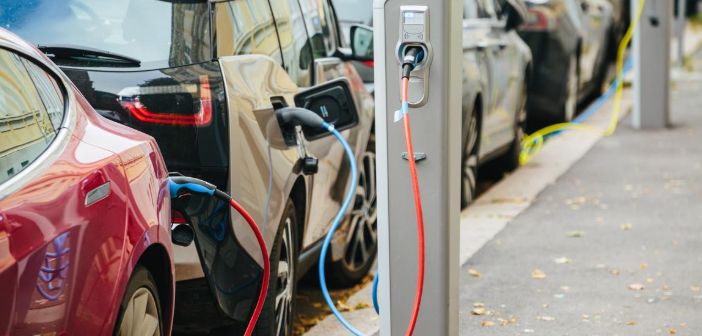Research commissioned by energy company Centrica claims that councils are planning to install an average of only 35 on-street EV chargers between now and 2025.
The research, commissioned by Centrica under a Freedom of Information request to over 400 councils, shows that there are 7,682 on-street chargers currently installed across the UK and only a further 9,317 are planned to be rolled out over the next four years.
According to Centrica, this leaves drivers without a driveway, those who have no access to home charging, “a long way behind” in the race to switch to EVs in time for the 2030 ban on petrol and diesel models.
Out of drivers who do not have a driveway or off-street parking, just 7% already have an EV, less than a quarter (24%) are considering switching but over half (53%) are not considering purchasing an EV at all.
When all drivers were asked to consider the ban, four out of five (83%) said that they think it will be easier for drivers with a driveway to make the switch.
The research also shows that installation plans are not distributed evenly across the UK. Southern English councils are set to install two and a half times as many on-street EV chargers by 2025 than councils in Northern England, the Midlands, Scotland, Wales and Northern Ireland combined, with 6,713 vs 2,604 respectively.
The latest figures show that southern councils have also plugged in 1,203 more chargers into their streets over the last three years than their northern counterparts. More than four in 10 (41%) drivers agreed that there is a North/South divide in council funding for charge point installations.
Furthermore, Centrica said that some 126 councils across the UK have no concrete plans to install any more EV chargers than they already have between now and the end of 2025. These include Bridgend, Fermanagh & Omagh, Dumfries & Galloway, Havering and Warrington.
And with less than 10,000 on-street chargers planned to be installed by 2025, Centrica said it was clear there is a gap between supply and demand with 2,835 requests for on-street charging made to councils in 2019, increasing 5% to 2,989 requests lodged to councils by September 2020.
When asked about barriers to EV ownership, half (49%) of drivers who said they would not consider purchasing an EV blamed the lack of access to on-street or public charging points in their area.
According to Centrica, the cost of an EV itself is also a major concern amongst two-thirds (61%) of those who are put off switching, alongside battery life (48%) and range anxiety (42%).
More than three quarters (77%) of drivers said that investment into more on-street charging points in urban areas would encourage more drivers without a driveway to go electric, as did a further three quarters (76%) who also said that the same investment in rural areas would boost local EV adoption.
Amanda Stretton, sustainable transport editor at Centrica, said: “The latest figures released today demonstrate the need for all UK councils to play their part in helping to achieve the 2030 ban.
“Whilst it’s great news that the government is providing initiatives to make the transition more affordable, cost isn’t the only barrier.
“With half of drivers attributing lack of chargers as the main reason preventing them from purchasing an EV, it’s unfair that those without a driveway risk getting left behind.
“Charging infrastructure and energy systems will need be upgraded to cope with the demand and support drivers.”





